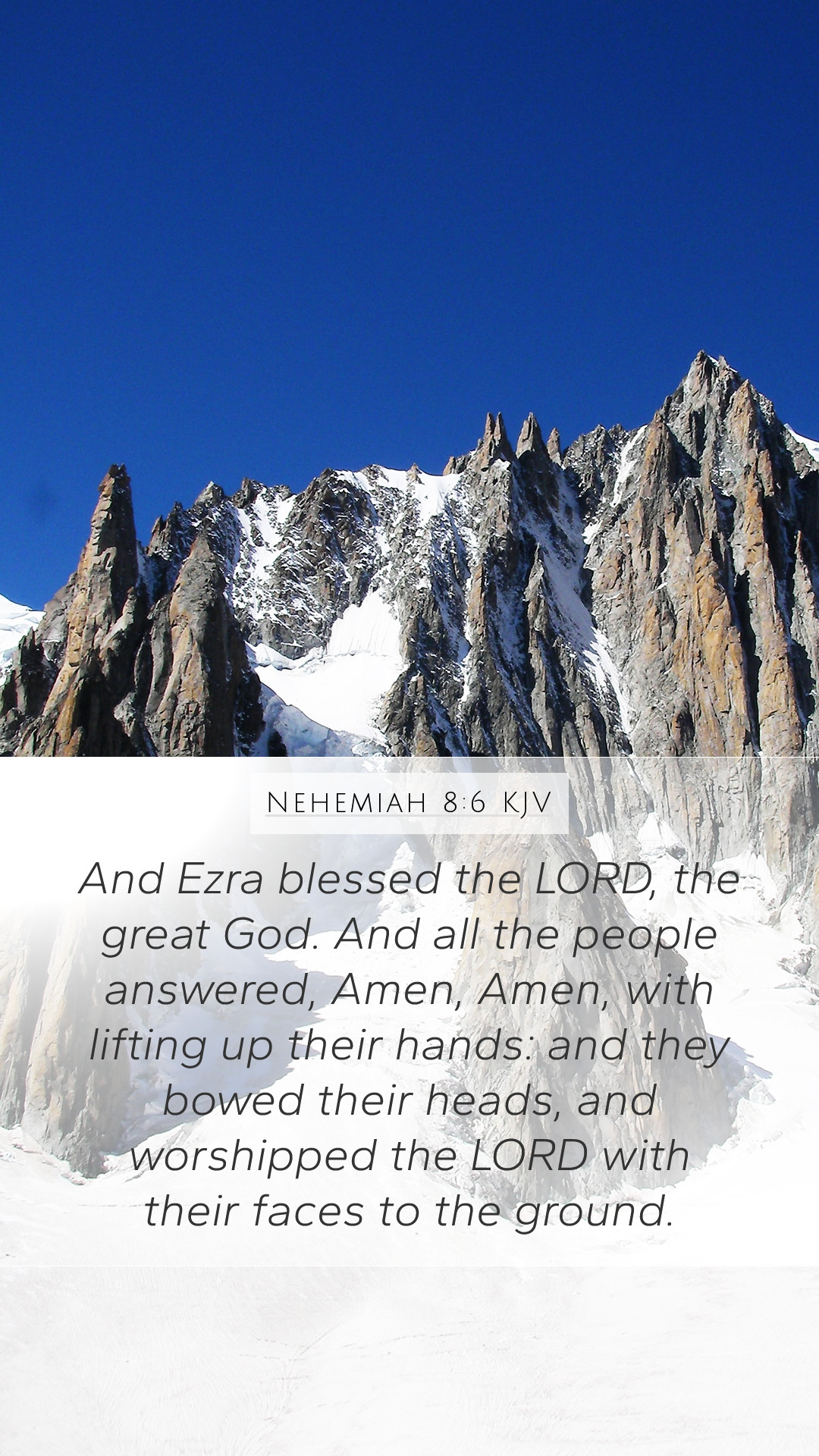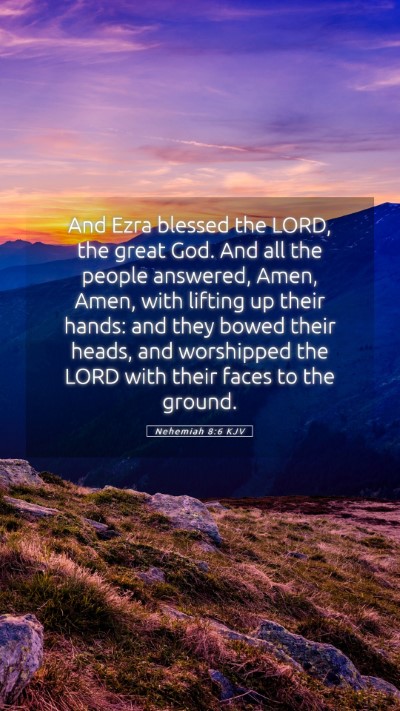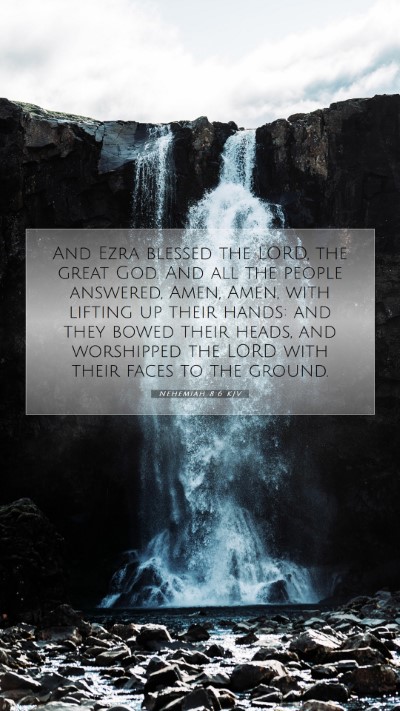Old Testament
Genesis Exodus Leviticus Numbers Deuteronomy Joshua Judges Ruth 1 Samuel 2 Samuel 1 Kings 2 Kings 1 Chronicles 2 Chronicles Ezra Nehemiah Esther Job Psalms Proverbs Ecclesiastes Song of Solomon Isaiah Jeremiah Lamentations Ezekiel Daniel Hosea Joel Amos Obadiah Jonah Micah Nahum Habakkuk Zephaniah Haggai Zechariah MalachiNehemiah 8:6 Meaning
What is the meaning of Nehemiah 8:6?
And Ezra blessed the LORD, the great God. And all the people answered, Amen, Amen, with lifting up their hands: and they bowed their heads, and worshipped the LORD with their faces to the ground.
Nehemiah 8:6 Bible Verse Meaning
Understanding Nehemiah 8:6 - Commentary and Interpretation
Nehemiah 8:6 states: "And Ezra blessed the LORD, the great God. And all the people answered, Amen, Amen, with lifting up their hands: and they bowed their heads, and worshipped the LORD with their faces to the ground." This verse captures a profound moment in the history of Israel, reflecting the people’s reverence and recognition of God's greatness through Ezra’s proclamation.
Summary of Nehemiah 8:6
This scripture emphasizes the importance of worship and communal agreement in acknowledging God. Ezra’s blessing acknowledges God's sovereignty, while the people's response signifies a unified, heartfelt devotion. The act of lifting hands and bowing their heads indicates submission, humility, and reverence.
Bible Verse Meanings: Insights from Public Domain Commentaries
Matthew Henry's Commentary:
- The act of Ezra blessing the LORD shows a direct acknowledgment of God's importance in the lives of the people.
- Henry notes that the communal response of "Amen, Amen" reflects a powerful unity among the congregation, affirming their agreement with God’s truth.
- The physical expressions of worship, such as lifting hands and bowing, emphasize an active participation in reverence towards God.
Albert Barnes' Commentary:
- Barnes explains that Ezra’s role as the priest was crucial in restoring the people’s understanding of their spiritual heritage.
- The "lifting up their hands" illustrates a traditional posture of supplication and gratitude, symbolizing a desire to receive God’s blessings.
- He points out that the act of worship signified both humility and a collective affirmation of God's greatness.
Adam Clarke's Commentary:
- Clarke elaborates on the significance of the blessing pronounced by Ezra, noting it was intended to draw the people’s focus on the holiness and majesty of God.
- He highlights that the people's response was not just verbal but also physical, as they actively engaged in the worship process.
- The bowing down "with their faces to the ground" stresses total submission and reverence before God.
Bible Verse Interpretations
This verse can be interpreted as a depiction of proper worship – one that is both informed by understanding and characterized by sincere devotion. The prominence of community in this worship setting underscores the idea that faith is not solely individual but is enriched through shared experiences and expressions of reverence.
Biblical Exegesis: Historical Context
In the broader context of the Book of Nehemiah, this verse occurs after the rebuilding of Jerusalem’s walls and signifies a major spiritual revival among the Israelites after years of exile and disarray. Ezra, as a scribe and priest, plays a pivotal role in educating the people about the Law of Moses, and this verse highlights the responsive heart of the Israelites toward God’s Word.
Application of Nehemiah 8:6 to Daily Life
For modern readers, this verse serves as a powerful reminder of the importance of worship, the value of expressing unity in faith with others, and the significance of active participation during communal worship settings. It challenges believers to engage genuinely with their faith, lifting their hands in praise and bowing in humility before God.
Cross References
- Psalm 95:6 - "O come, let us worship and bow down: let us kneel before the LORD our maker."
- 1 Chronicles 16:29 - "Give unto the LORD the glory due unto his name: bring an offering, and come before him: worship the LORD in the beauty of holiness."
- Lamentations 3:41 - "Let us lift up our heart with our hands unto God in the heavens."
Conclusion
Nehemiah 8:6 encapsulates not only a moment of worship but serves as a transformative example of how individuals and communities can respond to God's revelation. Through the insights gained from public domain commentaries, readers can deepen their understanding and appreciation of this passage, finding profound implications for both personal and communal worship today.


